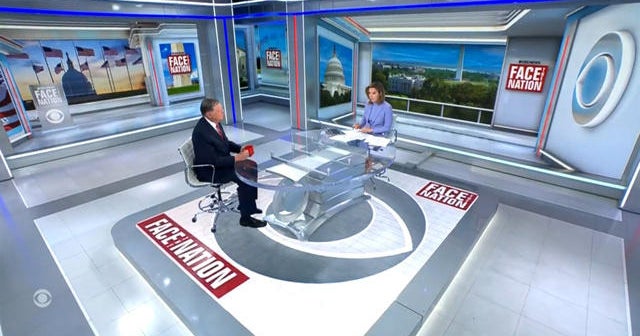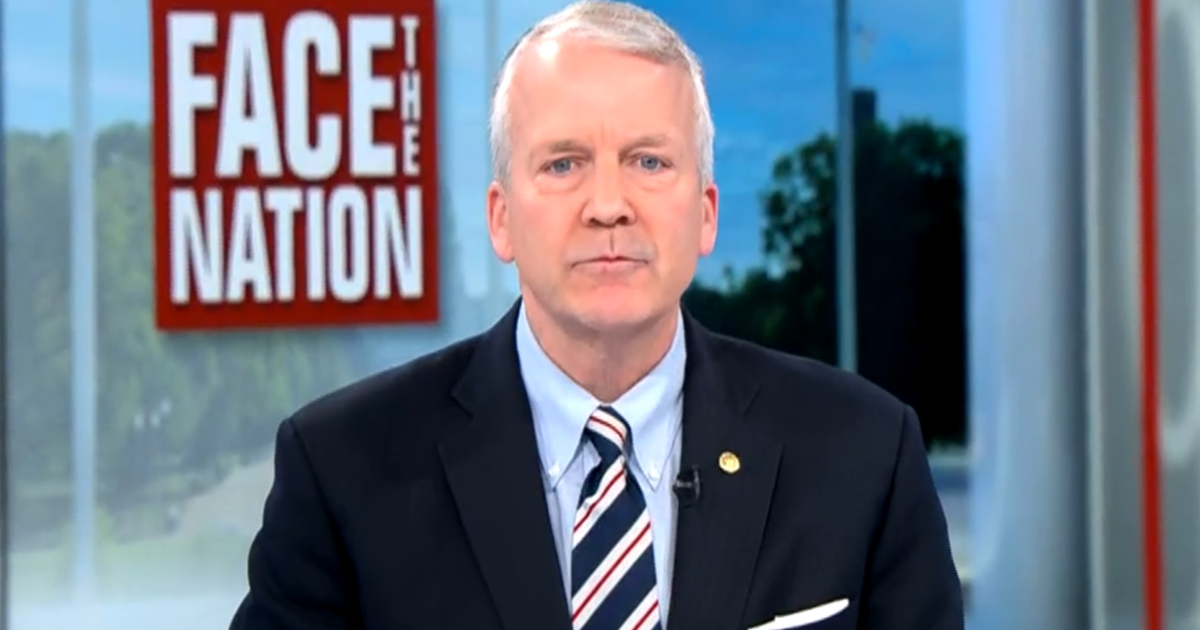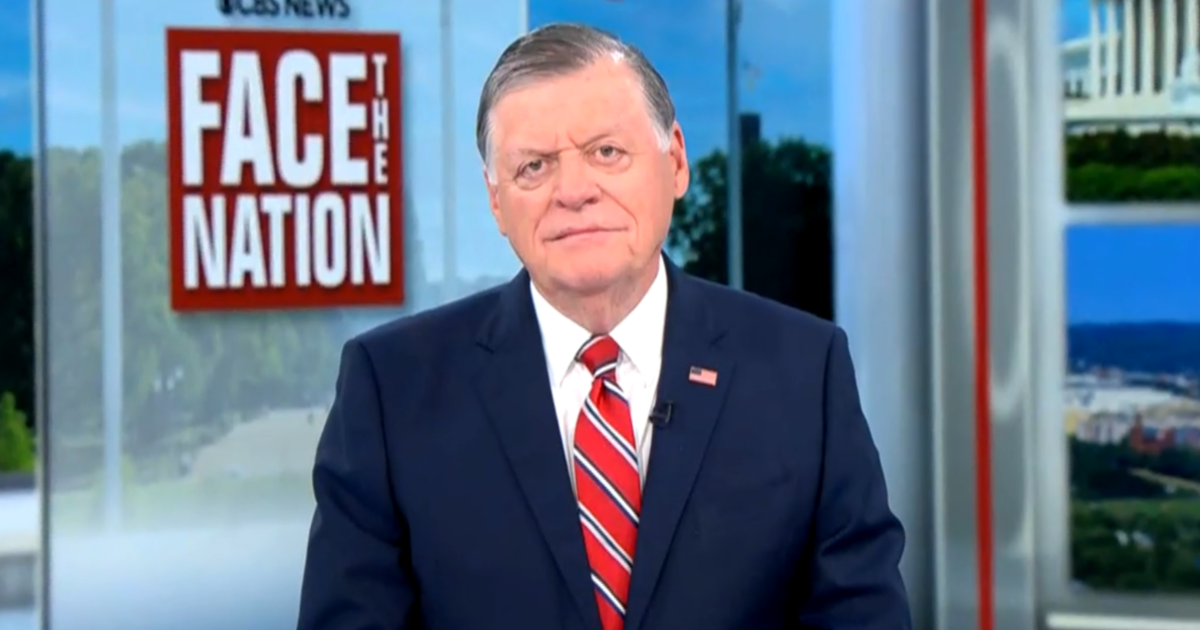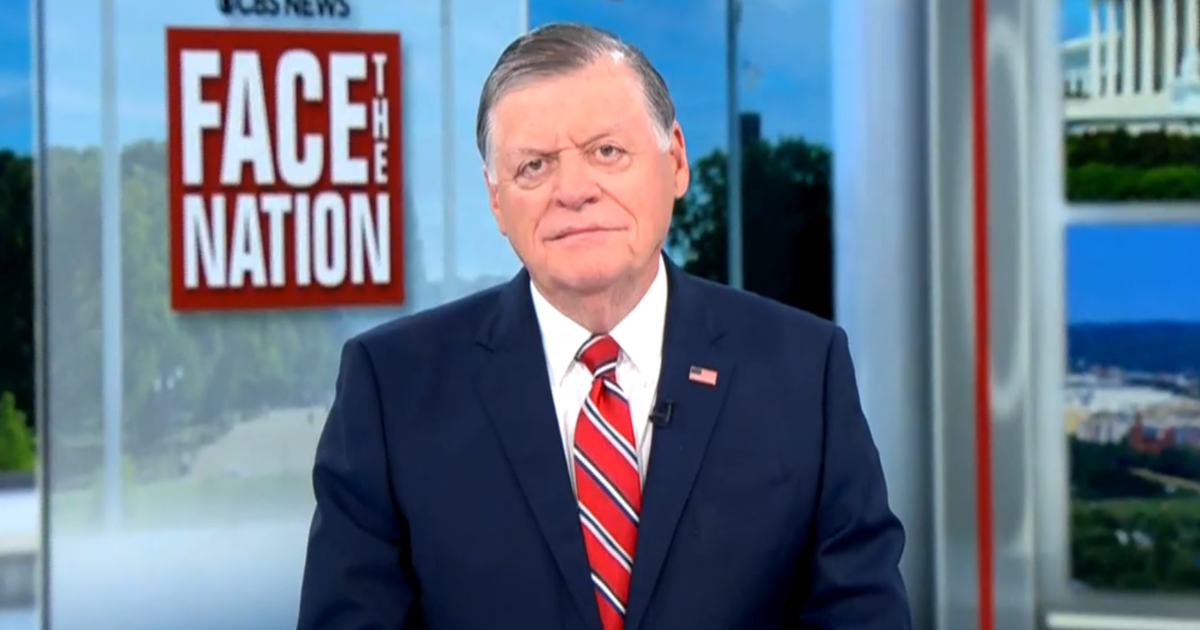ICYMI: Top takeaways from this week's "Face the Nation": The road ahead to police reform
This week on "Face the Nation", disturbing new trends with the spread of the coronavirus as America struggles to dismantle systemic racism -- and curb police brutality.
Here's the big takeaways from Sunday's episode of "Face the Nation" with Margaret Brennan
1. The three pillars to police reform, according to Sen. Tim Scott
- Republican Senator Scott said there are 3 planks underpinning his forthcoming police reform bill: 1) Mandate that police provide information to the Justice Department when there is "serious bodily injury and death." (2) "training and tactics", (3) officer misconduct
- What Scott said: "We have to have all the information. Today, only 40 percent of law enforcement off- departments are actually providing information to the DOJ. We need a hundred percent as it relates to serious bodily injury and death. When the officer uses force, we need to have all the information. I've been working on this, MARGARET, for five years. My first bill was in 2015 after the Walter Scott incident where he was shot in the back five times 30 feet from the officer. So this is an important opportunity for us to get all the information. The second thing we have to do is look at training and tactics. If we do that, we can certainly de-escalate the situation and make sure that the officer and the suspect go home. And the third part of it is officer misconduct. If we can drill into officer misconduct, we do it on the local level. House has been talking about doing it on a state level. The president's executive order talks about doing it on a national level. So if we could blend those three together, we might actually save hundreds of lives and improve the relationship between the communities of color and the law enforcement community."
- The poison pill that could sink this overhaul? Qualified immunity. Scott's proposal: "De-certification." He explains: "There are two ways that you could deal with that from- from the Republican perspective and the president sent the signal that qualified immunity is off the table. They see that as a poison pill on our side. We could use a decertification of officer, except for the law enforcement unions, say that's a poison pill. So we're going to have to find a path that helps us reduce misconduct within the officers. But at the same time, we know that any poison pill in legislation means we get nothing done. That sends the wrong signal, perhaps the worst signal right now in America. I think we're going to have legislation that can be negotiated that gets us to the place where something becomes law that actually makes a difference. That's got to be our goal."
- Meanwhile, New Jersey Democrat Senator Cory Booker said he has a competing bill and believes changes to qualified immunity need to be in it. While the White House said qualified immunity is a non-starter, Booker said that privately "senators like Senator Braun" have said to him that qualified immunity is "on the table."
- "Let's understand that qualified immunity right now is not a Democratic supported thing. Clarence Thomas and conservative Supreme Court justices say that we need to reexamine qualified immunity. Some of my Republican colleagues in the Senate right now have come forward to me and said we need to reexamine qualified immunity. What qualified immunity does in this country as it allows a case in Washington where a pregnant woman, seven months pregnant, was dragged into a street for not signing a parking ticket and tased three times. No accountability...I hear what folks are saying. But when there's so many conservative voices talking about qualified immunity and when we know that no one in America should be above the law, I think it's time that we change qualified immunity."
- Why this matters: Some in Congress are pushing to limit qualified immunity for police officers in a legislative package. Created by the Supreme Court decades ago, the legal doctrine largely shields law enforcement and other government officials from liability for conduct unless they violate "clearly established" constitutional rights. But the White House has said reducing immunity for law enforcement is a "nonstarter."
2. Seattle PD Chief: "Policing will never be the same"
- Seattle Police Chief Carmen Best said that seeing the protests in Seattle firsthand has convinced her that policing itself needs to change.
- What Best said: "Looking at the 60,000 people that were there, signs saying, you know, defund the police, stop police brutality, you know, no qualified immunity. And there were thousands of people carrying those particular signs. And I just realized it was a moment, an epiphany, that this is a pivotal moment in history. We are going to move in a different direction and policing will never be the same as it was before."
- CHAZ is now CHOP: The police chief said that for now the situation is peaceful despite Republican lawmakers describing it as a warzone. What's happening inside the six blocks that have been taken over by protesters, and in which the police have vacated the precinct?
- "Well, there are people who have occupied the area. My understanding is they've actually changed the name to the Capitol Hill Occupied Protest area. There are a lot of folks there, a lot of differing objectives and agendas and people who have congregated into the area. One of our real challenges there is trying to determine who is a leader or an influencer. And that seems to change daily. I know that many of our city officials and others are trying to establish some sort of communication with someone who can give us some direction about what the intent is and how we might move forward," she explained.
- Will the standoff ever end? "I wish I had the answer to how long it might last. I can tell you that we want to move it forward as quickly and efficiently as possible. But my concern as a police chief, besides that I want to be back in our precinct doing the work, is that we don't want anyone there to be harmed. We don't want this to be something that devolves into a force situation. So we're really trying to take a methodical, practical approach to reach a resolution where everyone gets out of here safely," Best said.
- Why this matters: Protests that erupted immediately following Floyd's death in late May have continued now into a third week, and Seattle has become an epicenter of the demonstrations. In the city's Capitol Hill neighborhood, protesters set up an "autonomous zone" and police evacuated their precinct there. But President Trump has since urged Seattle's mayor and Washington Governor Jay Inslee to "take back" the city and threatened to intervene if they did not take action.
3. Dallas Fed CEO: Health policy is as important as fiscal policy
- Dallas Federal Reserve Bank President Robert Kaplan says that wearing a mask is one of the best ways to get the economy humming again.
- What Kaplan said: "I think what you point out is the health care response at this point is as important as fiscal or monetary policy. And in particular, it's critical, based on my conversations with epidemiologists, that people widely wear masks, that we have good testing and contact tracing. And I think the- the extent we do that well will determine how quickly we recover. We'll grow faster if we do those things well. And right now, it's relatively uneven."
- Kaplan revised his prediction that the unemployment rate would rise to 20%. He said recovery is already happening.
- "We're on our way down right now. So there's some dispute about some of the data. But let's say the national unemployment right now- unemployment rate right now, if you did it accurately, we think is in the mid-teens. The other measures suggest there's even more slack. We're going to get positive job growth in June, July and from here. The issue we have, that I think the chairman talked about a few days ago, is if we're even with that growth, we're going to end the year with an elevated unemployment rate. And that depending on how fast the service sector comes back and people re-engage, we're still going to have an elevated level of unemployment maybe as high, based on my forecast, of eight percent or more. And it means that some people won't be able to go back to their old jobs and will have to find new jobs and this is why skill training, helping people find new jobs is going to be also a big part of this effort."
- Systemic racism hurts the economy: "For years, blacks and Hispanics have had an elevated level of unemployment versus whites. That started to improve dramatically in the last few years. We've now taken a step back as a result of this crisis. But a more inclusive economy where everyone has opportunity will mean faster workforce growth, faster productivity growth, and we'll grow faster. And so I think we're right to focus on this and bore in on this. It's in the interests of the U.S. The fastest growing demographic groups in this country are blacks and Hispanics. If they don't participate equally, then we're going to grow more slowly."
- Why this all matters: The nation's financial health is impacted by more than just jobs -- it acts more as a mirror to the racial, geographical and environmental hardships everyday Americans encounter on a daily basis. That's particularly true for a society rife with racial divides and a devastating pandemic.
4. Gottlieb: Think twice before attending a rally post-COVID
- Dr. Scott Gottlieb said that on a national scale, hospitalizations are flat but there are "pretty big outbreaks" underway in certain areas where there remains "persistent" spread of COVID-19.
- What Gottlieb said: "Hospitalizations nationally are flat. They're not going down, they're flat when you look at the total hospitalizations across the entire United States. And what we're seeing is that parts of the country that had persistent spread, that never really crushed their epidemic, now have flare ups in the cases, surge in cases as they reopened. That was expected. But the challenge is that parts of the country, states like Texas, Florida, Georgia, North Carolina, South Carolina, where you see those outbreaks right now, never really reduce the number of cases substantially. They had spread. It was persistent. And now it's flaring up. So in Arizona, you see 1,500 cases recorded recently in Florida 2,600, California, 3,700. To put that in perspective, at its peak of the epidemic in New York City, there were 5,000 cases a day recorded."
- Should you attend a political rally or protest? "I would certainly counsel against it," said Gottlieb. "If I was giving advice to the administration on this, I would say that they should withhold large political rallies right now. They also need to lead by example. And so encouraging people to social distance, encouraging people to wear masks, that's what we should be engaging in right now. And that political example is a powerful message to individual people all across the country."
- Does shouting offset mask benefits as Dr. Birx suggested? "I agree with her. We've seen data now from the CDC that shows choir groups in places where people were singing lead to spread within confined spaces. Obviously, the risk is a little bit diminished when you're outside versus indoors. But we know these large gatherings are going to lead to more spread. The spontaneous protests around the country are going to lead to additional spread. Certainly holding a large political rally will as well. That's in an indoor space. It's a confined space. And so we need to be mindful of this," Gottlieb said.
Why this all matters: For those who might have forgotten -- is indeed an election year. And while much of American life attempts to return to "normal", that may not be the same for the political world. With typical conventions in question, the rally of yesteryear may be a forgone conclusion.
Missed Sunday's episode? Click here to watch the show. "Face the Nation" airs Sunday mornings on CBS. Click here for local listings.




